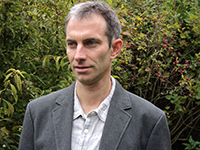Will to win forms at four years old
 New research suggests children don’t understand competitive behaviour until around the age of four.
New research suggests children don’t understand competitive behaviour until around the age of four.
A team of researchers from the University of Warwick and University of Salzburg found most children under 4 did not have a developed understanding of other people's perspectives — specifically, of the fact that what someone intentionally does depends on their take on the situation.
Johannes Roessler, from the Department of Philosophy at the University of Warwick, and his co-authors Beate Priewasser and Josef Perner from the Department of Psychology at the University of Salzburg, tested 71 children aged between 3 and 5 years old.
They first tested the children to assess whether they understood that people sometimes act on the basis of false beliefs.
Roessler said: “In the classical ‘false belief task’, children watch a boy put some chocolate in a drawer and go off to play. Someone comes along and moves the chocolate to the cupboard. The experimenter then asks children where the boy will go to retrieve his chocolate. Children under the age of 4 tend to predict that he will go straight to the cupboard, because that is where the chocolate now is — even though the boy had no means of knowing this!
“Older children tend to predict that he will go to the drawer, which is the correct answer because the boy believes the chocolate to be in the drawer. Thus younger children seem to lack a developed understanding that people’s intentional actions reflect their perspective (beliefs) on how best to accomplish their goals.”
The researchers wanted to explore how much young children’s understand other people’s goals: do they understand that an actor’s goals reflect his or her perspective on what’s desirable?
The team set up a game for the children. They each had a vertical stand and were told they had to throw a die and then put the corresponding number of beads on their stand. The aim of the game was to be the first to fill their stand with beads, taking them either from the central basket or from other players’ stands.
Roessler said they wanted to see if the children would take beads from the basket (neutral move) or from another player (a competitive or ‘poaching’ move). The point of taking beads form another player’s stand is of course not just to further one’s own goal (to fill one’s stand) but also to foil the other player’s attempt to reach his or her goal (to fill his or her own stand). The intentional use of poaching moves then, may be expected to show an understanding that the two players have different, and conflicting, goals, i.e. different perspectives on which outcome is desirable.
The results showed that very few children who failed the false belief task showed any tendency to engage in competitive poaching moves. This was so even when these children suffered from their opponent’s poaching moves: they would not ‘retaliate’. This last finding was especially significant. If children understood the goal informing the other’s poaching moves, one would expect them, at least occasionally, to respond in kind.
“The ‘four years of age’ rule isn’t hard and fast. What’s important is not the absolute age of the child, but the fact that those who do not understand how intentional action can be informed by false beliefs also tend to struggle with the idea of competition.”
Notes to editors
The paper, Competition as Rational Action: Why Young Children Cannot Appreciate Competitive Games, Beate Priewasser, Johannes Roessler, Josef Perner, is available online in the Journal of Experimental Psychology here. It is due to be published shortly in a forthcoming printed edition of the Journal.
For more details please contact Johannes Roessler on J.Roessler@warwick.ac.uk or Kelly Parkes-Harrison, Press and Communications Manager, University of Warwick, k.e.parkes@warwick.ac.uk
or Kelly Parkes-Harrison, Press and Communications Manager, University of Warwick, k.e.parkes@warwick.ac.uk , 02476 150868, 07824 540863
, 02476 150868, 07824 540863
Further information
Interested in studying Philosophy? Limited places are available through Clearing
